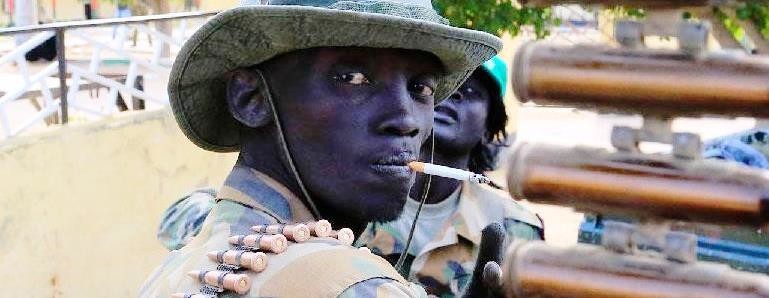South Sudan has continued to import and conceal arms despite an arms embargo imposed by the United Nations, Amnesty International said in a new report on Thursday.
In 2018, the United Nations Security Council imposed an arms embargo against South Sudan over violence, and renewed it in 2019 in order to stop the flow of weapons to armed groups.
Next month the UN Security Council is set to vote on a resolution that would renew the embargo, which currently expires on 31 May 2020.
The human rights group called on the UN Security Council to renew and strengthen enforcement of the arms embargo on South Sudan.
The new report stated that multiple security forces are concealing weapons amid a volatile security situation in South Sudan.
The organization said its investigators earlier this year gained access to 12 military training and cantonment sites across the country run by members of formerly opposed forces including the SSPDF, SPLA-IO and SSOA, as well as the organized forces.
The group further said it discovered evidence of newly imported small arms and ammunition, illicit concealment of weapons, and diversion of armoured vehicles for military uses not approved under the arms transfer licenses.
It added that government and former opposition forces’ reporting on security arrangements actively deceived Intergovernmental Authority on Development (IGAD)-supported monitors.
“The African Union has dubbed 2020 the year to ‘silence the guns’ on the continent, which, as they have stated, includes taking measures to prevent UN arms embargo violations. Renewing the embargo on South Sudan is a crucial part of this effort. Weapons have been used to commit horrific human rights violations and war crimes throughout the conflict,” said Deprose Muchena, Amnesty International’s Director for East and Southern Africa.
He added, “The UN arms embargo hasn’t been a panacea, but the situation would almost certainly be worse without it in place. The ceasefire continues to be broken sporadically, the implementation of critical security, governance and accountability arrangements are persistently delayed, and South Sudan – awash with small arms – is also facing the public health crisis posed by COVID-19. Now is not the time to let even more weapons flow into this volatile mix.”
Radio Tamazuj could not reach army spokesman Lul Ruai Koang to comment on the new report.
A new unity government was established in South Sudan in February after protracted talks between President Salva Kiir and opposition leader Riek Machar, who now serves as first vice president.
President Kiir and opposition leaders have yet to create a unified army, a key requirement of the September 2018 peace deal.




